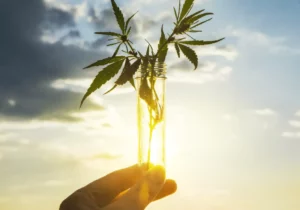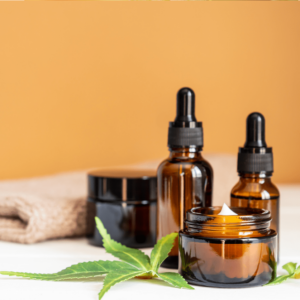"I’m taking the CBD oil to help with depression and while I’m weening off Zoloft. Wondering why I experienced a high and sedation when CBD supposedly doesnt impair you in any way like THC?I felt a slight impairment of my vision and a foggy feeling in my head and felt less alert and reactive while driving from the CBD. I’ve only been taking it for a few days and have lessened the dose to like 12.5 ml twice a day and notice less impairment. Wondering if it’s my brain getting used to the CBD and if the Sedation and impairment of senses will subside so I can go up to a more therapeutic dose as I decrease my Zoloft dose slowly. "
Hello,
First and foremost, please discontinue taking the hemp derived CBD and consult with your primary care physician immediately. Also, if not already doing so, you should taper off of the Zoloft under the supervision of your prescribing physician — not doing so may result in withdrawal symptoms, including: anxiety, fatigue, insomnia, depression, mood swings, nausea, vomiting, diarrhea, abdominal cramping, flu-like symptoms, headache and sweating; your symptoms may be due to improper tapering.
I also recommend that you dispose of that bottle of CBD oil. Although unlikely, that oil may have not been processed correctlly, which possibly may lead to higher levels of THC than allowed.
Additionally, because CBD, THC and Zoloft are all metabolized by the cytochrome P450 system, I recommend that you discontinue cannabis products altogether until you’ve completed the tapering down of Zoloft.
drkim
Hello Tcylinder,
I do not doubt anything you’re telling me. I also do not doubt the people relaying their supporting anecdotal accounts. However, the science, thus far at least, behind CBD’s non-psychoactivity is clear; the reason is the CB1 receptor. THC binds the CB1 receptors in the brain with high affinity, which then leads to many of the effects of cannabis, including sedation and becoming "high." However, CBD binds the CB1 receptor very weakly (low affinity). Furthermore, CBD is actually a weak inhibitor of the CB1 receptor. Therefore, I am somewhat skeptical that it’s the CBD causing the mild high and sedative effects.
However, the science behind cannabis’ effects, benefits and detriments is still in its infancy — especially so when it comes to CBD — so it is possible that CBD is what’s causing your symptoms. I still recommend that you consult your prescribing physician and that you discontinue the CBD until advised otherwise by your doctor.
Regards,
Dr. Kim
drkim
I’m curious about whether you’ve discussed any of this with your physician who is prescribing the Zoloft? As Dr. Kim noted, CBD may compete with Zoloft for metabolism, potentially affecting the level of both substances in your system and making assumptions about dose vs effect less reliable. There is also considerable individual variation in this area of human biochemistry. And, while CBD does not bind to CB1 receptors in the nervous system the way THC does, it does modulate the interaction of THC with those receptors, which is a basis for exploring the differences in effects of various CBD:THC ratios. I do want to mention that while some apparent medical effects have been noted at various doses of CBD there is little, if any, science demonstrating target or optimum doses associated with those effects. In other words, this is still ‘folk-medicine.’ So is the idea that some people may experience a ‘subtle high’ with CBD alone. I’m fond of saying there is wisdom in folk-medicine, it’s just hard to find out which wisdom is real. Finally, I’d like to add that many patients previously on SSRIs have found cannabis useful enough for moderating mood that they are able to discontinue the SSRI entirely For those whose work situation requires avoiding any overt pschoactivity, preparations such as 20:1 CBD:THC during that part of the day may be helpful. I hope you find a regimen that suits you.
drelkind





